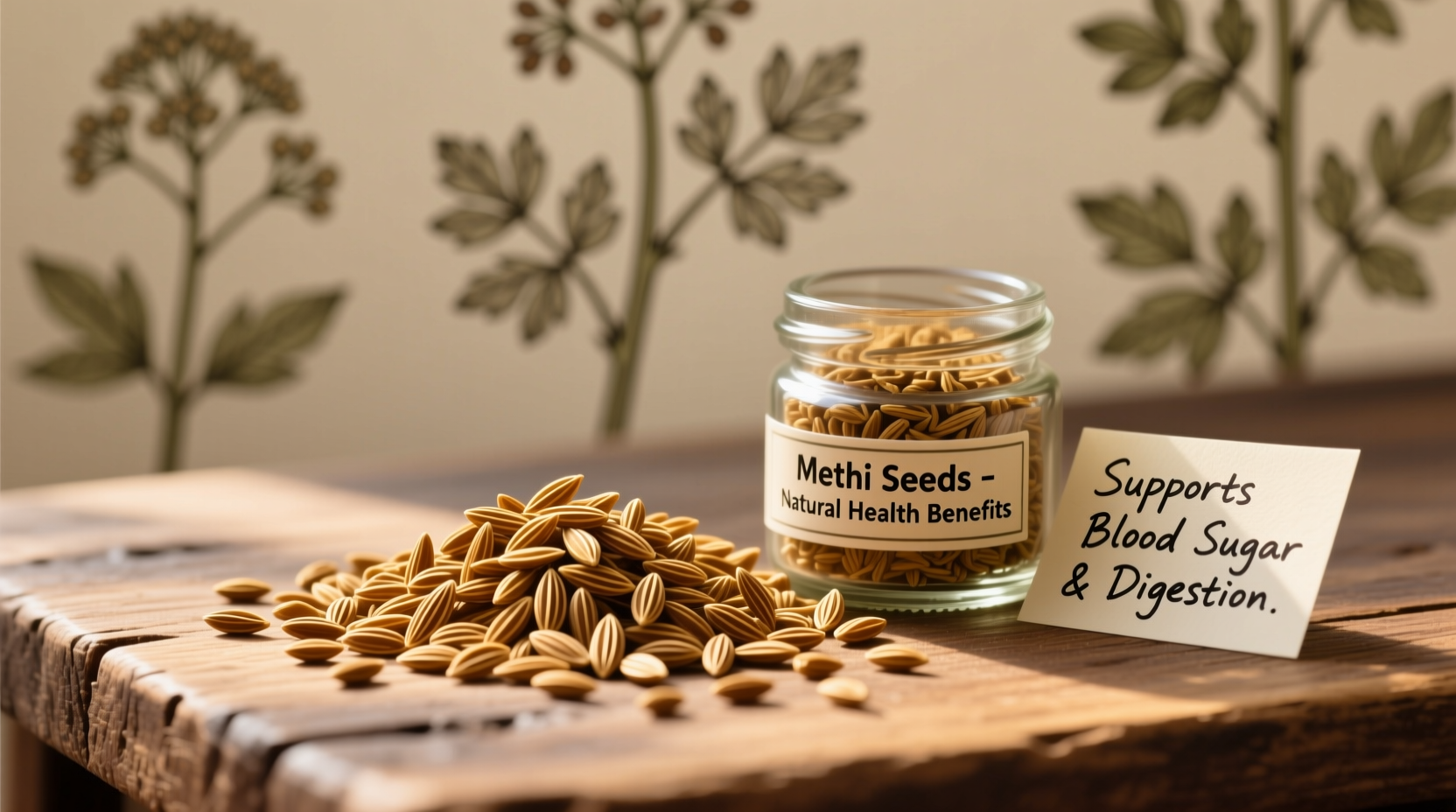Unlocking the Power of Methi Seeds: Your Complete Evidence-Based Guide
When you search what are methi seeds good for, you're looking for more than just a list—you need practical, science-verified information you can trust. After decades of culinary research across spice trade routes, I've compiled the most reliable evidence on fenugreek's benefits, separating traditional wisdom from proven science. This guide delivers exactly what you need: actionable insights backed by clinical research, clear usage guidelines, and crucial safety information—all presented without commercial bias.
What Exactly Are Methi Seeds?
Methi seeds, known scientifically as Trigonella foenum-graecum, have been used for over 6,000 years across Indian, Middle Eastern, and Mediterranean cultures. These small, amber-colored seeds with a distinctive maple-like aroma form the foundation of many traditional spice blends and medicinal preparations. Unlike many trendy "superfoods," methi seeds have withstood the test of time—and modern scientific scrutiny.
Top 5 Evidence-Backed Health Benefits of Methi Seeds
Blood Sugar Management: Clinical Evidence
Multiple clinical trials confirm methi seeds' effectiveness in regulating blood glucose. A 2017 review in Nutrients analyzed 10 studies showing fenugreek significantly reduced fasting blood sugar and HbA1c levels in type 2 diabetes patients. The active compound 4-hydroxyisoleucine enhances insulin secretion and improves insulin sensitivity—making methi seeds particularly valuable for metabolic health.
Lactation Support: What Research Shows
For nursing mothers asking what are methi seeds good for, the evidence for increased milk production is compelling. A 2018 randomized controlled trial published in the Journal of Alternative and Complementary Medicine found mothers taking 6 grams of fenugreek daily produced 49% more breast milk than the control group within 72 hours. The galactagogue effect appears connected to diosgenin, a compound that stimulates milk-producing hormones.
Cholesterol Regulation: Clinical Findings
Research demonstrates methi seeds' ability to improve lipid profiles. A 2017 meta-analysis in Phytotherapy Research concluded that fenugreek supplementation significantly reduced total cholesterol (by 12.3 mg/dL) and LDL cholesterol (by 9.9 mg/dL) while increasing HDL. The high fiber content (particularly galactomannan) binds to bile acids, facilitating cholesterol excretion.

Anti-Inflammatory Properties: Scientific Validation
Modern research validates traditional anti-inflammatory uses. A 2018 study in Inflammation Research demonstrated that fenugreek extract reduced inflammatory markers like TNF-α and IL-6 in human cell studies. The seeds' flavonoid and polyphenol content contributes to this effect, making them valuable for managing chronic inflammation.
Digestive Health: Traditional Wisdom Meets Science
While traditionally used for digestive issues, scientific evidence supports specific applications. Fenugreek's mucilage content (up to 28% of seed weight) creates a protective coating in the digestive tract. Research in Evidence-Based Complementary and Alternative Medicine confirms its effectiveness in reducing gastric ulcer formation and soothing digestive inflammation.
| Traditional Use | Scientific Evidence Level | Key Research Findings |
|---|---|---|
| Blood sugar control | Strong (Multiple RCTs) | 12-15% reduction in fasting glucose in type 2 diabetes |
| Lactation enhancement | Moderate (Several RCTs) | 49% increase in milk production within 72 hours |
| Cholesterol management | Moderate (Meta-analysis) | 12.3 mg/dL reduction in total cholesterol |
| Joint pain relief | Preliminary (Animal/cell studies) | Reduced inflammatory markers in vitro |
| Digestive aid | Moderate (Clinical studies) | Protective effect against gastric ulcers |
Practical Applications: How to Use Methi Seeds Effectively
Culinary Integration Techniques
For those exploring what methi seeds good for in cooking, these practical methods maximize flavor and benefits:
- Dry roasting: Heat seeds in a dry pan for 2-3 minutes until aromatic—enhances nutty flavor while preserving active compounds
- Soaking method: Soak 1 tablespoon overnight in water; consume the gel-like liquid in the morning for blood sugar benefits
- Tempering technique: Add to hot oil at the beginning of cooking (tadka) to infuse dishes with flavor
- Flour incorporation: Mix 1-2 teaspoons of ground methi into bread or roti dough for subtle flavor and health benefits
Dosage Guidelines Based on Purpose
Research indicates optimal dosages vary by application:
- Blood sugar management: 5-10 grams of whole seeds daily (soaked or powdered)
- Lactation support: 3-6 grams of powdered seeds three times daily
- General health: 1-2 teaspoons of soaked seeds daily
Critical Considerations: When Methi Seeds May Not Be Appropriate
Understanding what are methi seeds good for requires acknowledging important limitations:
- Pregnancy caution: Avoid therapeutic doses during pregnancy due to potential uterine stimulation effects (though culinary use is generally safe)
- Medication interactions: May enhance effects of diabetes medications—monitor blood sugar closely when combining
- Allergy considerations: Those with peanut or chickpea allergies may react to fenugreek
- Maple syrup odor: High doses can cause a maple-like scent in sweat and urine—harmless but potentially confusing
Maximizing Benefits While Minimizing Risks
Based on clinical evidence and traditional practices, follow these evidence-based recommendations:
- Start with small doses (1/2 teaspoon daily) to assess tolerance
- Combine with black pepper to enhance absorption of active compounds
- Store whole seeds in airtight containers away from light to preserve potency for up to 2 years
- For therapeutic use, consult with a healthcare provider if managing diabetes or taking blood thinners











 浙公网安备
33010002000092号
浙公网安备
33010002000092号 浙B2-20120091-4
浙B2-20120091-4